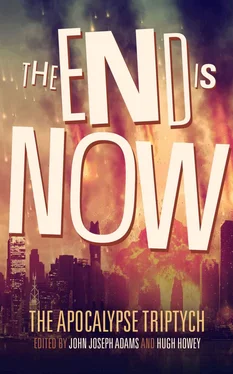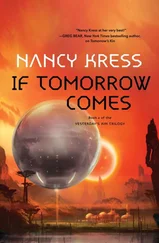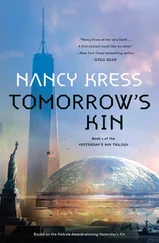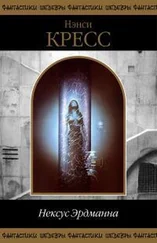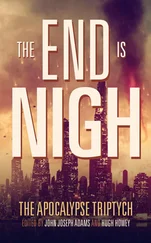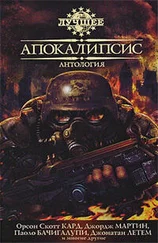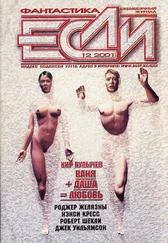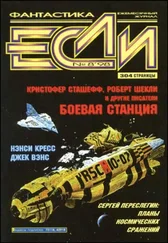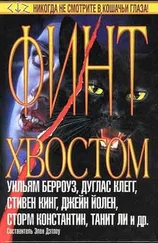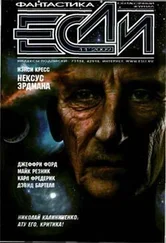The sound of the door slamming behind me was loud in the quiet morning air. I shivered as I walked around to the back of the truck, unlocking the sliding door and pushing it open just enough to let me slip inside.
“Nikki? Honey, I brought your juice.” I boosted myself up into the back. The gray had spread again during the night, spreading to consume more of the walls and ceiling. It was still avoiding the floor, for the most part. I wondered if it was because the plastic was thicker there, giving it less to feed on. It didn’t really matter.
The mass at the rear of the truck didn’t move or respond. The first cold needle of fear sliced through my heart, cutting away the panic that I had lived with every day of my life and replacing it with something deeper and more pure. In that moment, I felt as if I finally understood what it was like to be afraid, and it was the worst thing I had ever known.
“Nikki?” My voice was barely a whisper. I forced myself to move forward, edging deeper into the gloom than I had gone in days. “Sweetheart, are you awake? I brought you some juice. I couldn’t find any orange—I know you like the orange best—but there’s pineapple, and grapefruit, and . . . and I can open it for you. Would you like that? Would you like me to open it? Honey? Nikki?”
Still she didn’t respond. The gray mass filled the entire back third of the truck—and when did it get that large? When did the fungus become so much bigger than she was? How could there be anything left of her, if there was that much here that wasn’t her?
“Nikki?”
I left the juice behind as I crawled into the dark, feeling the knees of my moon suit shred under the friction. I was tearing away the plastic that covered the floor, but I didn’t care, for once in my life I was making a mess and I just didn’t care, because Nikki was on the other side of the mess. Nikki was in the place where order became chaos, and I had to reach her. If I did nothing else in this world, I had to get to her, to save her . . . or to die with her, I didn’t know anymore.
“Nikki?”
There was no response. I steeled myself against my demons and drove my hands into the gray, feeling around for anything other than that terrible softness. I groped around in the dark, feeling delicate fungal structures shred and come apart under my fingers, and I couldn’t stop. My compulsion had found something to seize on, and it wasn’t going to let go until it was done with me.
My fingers slipped and skidded in the gray, seeking purchase and finding nothing. I realized that I was crying. Part of me knew that I needed to stop, that tears were a growth medium in and of themselves—not as good as orange juice, maybe, but still excellent. The rest of me knew that there was no point. I could cry forever, and it wouldn’t change anything.
There was always one orange on the tree that didn’t succumb, always one slice of bread that somehow stayed clean and untouched when the blue mold bloomed. Resistance existed in nature, because without it, there would be nothing left.
Nikki hadn’t been able to last longer because I fed her. That was delusion, me trying to convince myself that all things were created somehow equal. Nikki had lasted longer because I gave birth to her, and because I, through some bitter quirk of genetics, some unspeakably cruel twist of DNA, I was resistant.
My hands seized on something down in the softness. I lifted it up, feeling it start to come to pieces against my fingers. Still, the shape of it was true. I had never really seen it before—not undressed, not without its cloak of flesh and human features, the pursed lips, the eyes so much like mine—but I had known it since it first started to grow inside me. It had been the first thing of Nikki to truly have form, taking up most of her ultrasound pictures. It had seemed so big then, housed within the palace of my belly. It feels so small now.
I pulled, and Nikki’s crumbling skull was in my hands, patches of white bone gleaming through the runnels of gray mold. She almost looked like she was smiling at me.
“Hi, baby girl,” I whispered. I pressed my lips against her forehead, feeling the softness there, the way the bone bent under even that faint and loving pressure. There was no moisture left. The fungus might have taken her slowly, but in the end, it took everything she had. There was nothing left for me to save. Maybe there never had been.
“Resistant” was not the same thing as “immune.” Immunities almost never occurred in nature. I kissed my daughter’s skull again, bearing down harder this time, until it came apart in my hands and crumbled into the greater gray. Shreds of fungus clung to my lips, light and soft as cotton candy. I licked them away. They had no taste. I swallowed anyway.
Nikki began her life inside me. This fungus was all that remained of her. It was only right that she go back where she belonged.
Sitting in the gray, I buried my hands in it and began, systematically, to eat.
“Resistant” didn’t mean “immune.”
If I was lucky, I would see my family soon.
ABOUT THE AUTHOR
Seanan McGuirewas born and raised in Northern California, resulting in a love of rattlesnakes and an absolute terror of weather. She shares a crumbling old farmhouse with a variety of cats, far too many books, and enough horror movies to be considered a problem. Seanan publishes about three books a year, and is widely rumored not to actually sleep. When bored, Seanan tends to wander into swamps and cornfields, which has not yet managed to get her killed (although not for lack of trying). She also writes as Mira Grant, filling the role of her own evil twin, and tends to talk about horrible diseases at the dinner table.
BLACK MONDAY
Sarah Langan
On Display at the Amerasian Museum of Ancient Humanity, 14,201 C.E.
Aaaaroooaaah! Aaaaroooaaah! Aaaaroooaaah!
It’s dusk on Black Monday. In six hours, Aporia Minor crashes into Antarctica. Three hours after that, Aporia Major obliterates the Ivory Coast. Anybody less than ten feet below ground dies in the hot dust showers. The one percent of humanity lucky enough to nab tickets to underground shelters is stuck there until the air clears—about a thousand years.
Aaaaroooaaah! Aaaaroooaaah! Aaaaroooaaah!
The Northern Lights splatter-paint the sky like a Jackson Pollock. I’m about a hundred feet outside the front steps to the old Strategic Air Command installation in Offutt, Nebraska—the heartland of America. There’s this sweet spot right next to this retired B-52 that relays unsecured satellite waves.
Aaaaroooaaah! Aaaaroooaaah! Aaaaroooaaah!
“What’s that? What’s happening?” my husband Jay asks.
“Air raid for the 55th Battalion. I heard the war moved into North Korea. It’s breaking down . . . Everybody’s been leaving their posts.”
“Same here. The Schwandts slaughtered their cattle,” Jay tells me. “Two thousand heads.”
“God, why?”
“They joined that rapture cult—the Dorothys. I think it was an offering to God.”
“I never liked those people. All that chintz in her kitchen,” I say.
Above me, behind me, in front of me, the Aurora sets the world aglow.
“What time do your Shelter Nine Tickets say you’re supposed to rendezvous?”
“They never delivered them,” Jay says.
I get this lump in my throat. “What do you mean you’ve got no Tickets?”
“I watched by the door since you left yesterday morning. No one’s come.”
“When were you going to tell me? After the Aporia Twins hit and you’re all dead?”
Under the sirens, I can hear Myles’ and Cash’s high-pitched hoots. Myles wants to say hello ( Momma? Is that Momma? Give me the phone!). Cash is bouncing on the couch. “Jumpy-jump! Jumpy-jump!” he cries. Their voices are sweet confections I could lick.
Читать дальше
